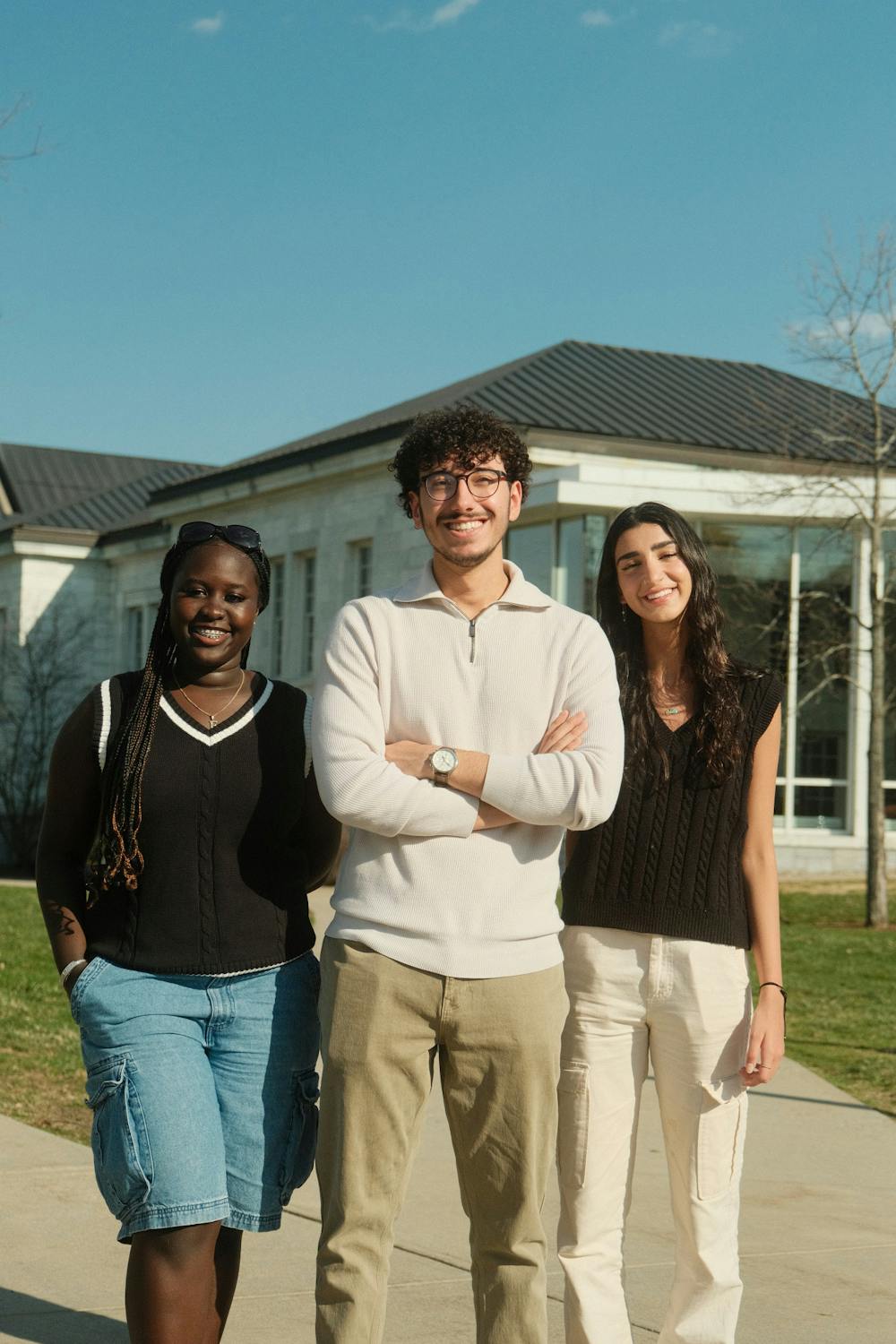This coming Monday, April 24 is the Student Government Association (SGA) presidential election. Next year’s SGA senators and president will work with the administration and advocate for the needs of the student body as well as allocate student activity funding and make appointments to student, faculty and trustee committees. This week The Campus interviewed each of the SGA candidates.
SGA Presidential Candidates
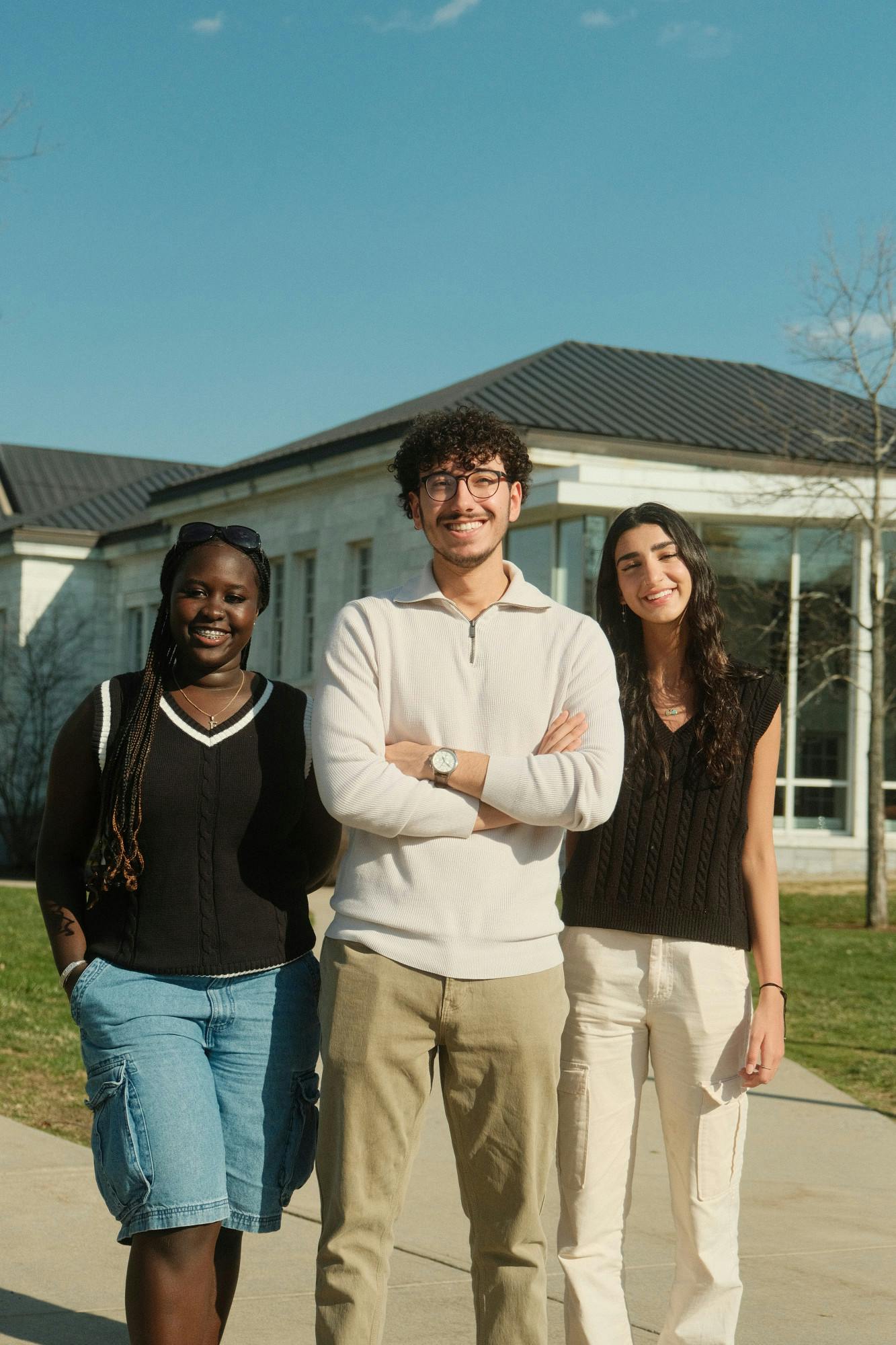
Abed Abbas ’24
Jonathan Eaton: What is your Hometown?
Abed Abbas: I am a Palestinian refugee from Tripoli, Lebanon.
JE: What is your major and minor, if you have a minor?
AA: I am majoring in Neuroscience on the pre-med track, with a Global Health minor.
JE: Can you give a brief description of your personal background and why you are running for SGA president?
AA: Representing 25,000 refugee students back home and working to sustain their most basic needs showed me the transformative power of advocacy. I want to be part of the immediate, consistent and long-term change that will benefit current MiddKids and those to come. Being an SGA president will provide me with the platform I need to represent the student body and meet our demands.
JE: If elected, what qualities and policies would you uniquely bring to the table? What is your vision for Middlebury?
AA: Bold action requires bold leadership. I strongly believe that our needs can be met even without the complicated bureaucracy. Many students hold the idea that SGA is unnecessary as it doesn’t affect their personal experiences. I want to change that through centering efforts to address all concerns. My vision is represented by a very strong community and a formation of a Middlebury identity that is inclusive to everyone. This happens by addressing the underlying issues that are preventing our student body from connecting well. My team and I are dedicated to raise the bar of our ambition for a well-rounded community by leading initiatives that provide the change we need. To learn more about what we plan to do, go/abed/.
JE: What would you do as SGA President to improve the accessibility of food on campus at night, specifically how will you fix the Grille and Dining hall Hours?
AA: The issue with the Grille is not specific to the Grille, but a problem that Middlebury has been facing across many fronts. This prompts us to think about innovative ways to address staff shortages. I want to explore options where we can incorporate student-workers within the rules that ensure the continuity of operation at the Grille just like Crossroads and Wilson. We aim to plan active steps to reshape the way the school allocates funding to its retail services or find alternative ways to generate revenue that can fund the costs of operation to attract prospective employees. To ease the problem of late-night dining, I will bring back 10 o’clock Ross through reassembling the dining committee ad-hoc to specifically address this through a very concise focus. Having more capacity to accommodate as many students as possible by utilizing the infrastructure that already exists in the spaces surrounding the dining halls. By amplifying student voices and giving a great platform for student advocates and leaders, change will emerge. Aiming to be self-sufficient and provide opportunities for students to work and minimize the need for staff to work hours that do not align with their lifestyle, we aim for students to have access to dining hall student-operated snack bars between lunch and dinner, and potentially a bit after dinner too.
JE: Also, as president what would you do to address student security concerns after the Active Shooter False Alarm in Davis Library?
AA: To address student security concerns, the best thing we can do is to better prepare for such situations. We do not have control over the extraneous factors that affect our sense of security, but we can prepare to deal with them better. We need to do our best to repair the damage that has been caused and to learn from what went wrong, so we can be ready as a community to face those challenges in the future. This will be done through initiating continuous communication between students, pubsafe and administration to respond to security concerns in a timely manner under a student–led safety community.
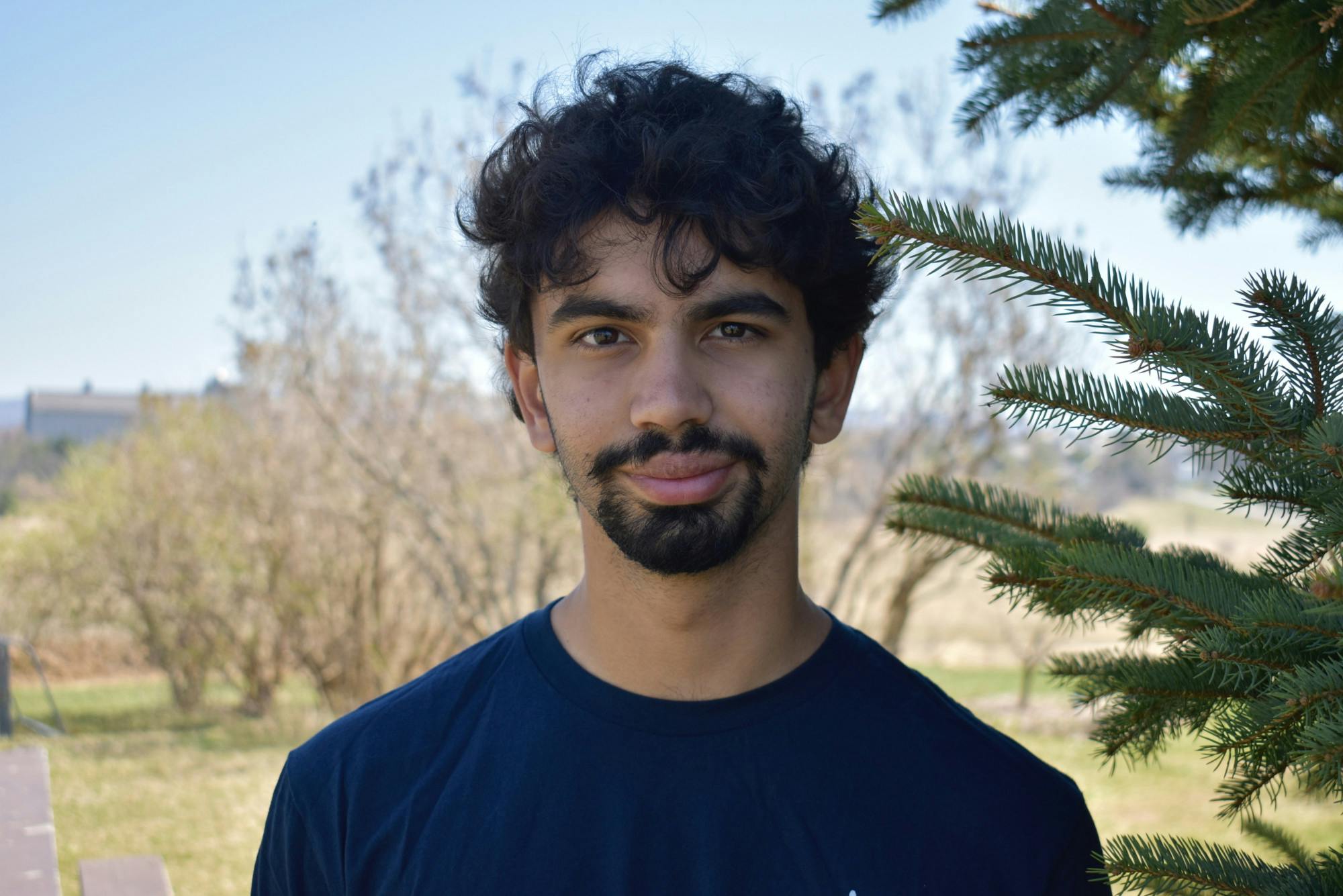
Aniketan Pelletier ’25
JE: What is your Hometown?
Aniketan Pelletier: I grew up around the world, most recently in Antananarivo, Madagascar. My family currently resides in Houston.
JE: What is your major?
AP: I'm a classical studies and math double major, as of now.
JE: Can you give a brief description of your personal background and why you are running for SGA president?
AP: By living in seven different countries and seeing democratic processes in action around the world, I've developed an appreciation for how local participation can make real changes in people's lives. That's why I'm running for SGA president: to restore faith in the power of the SGA to be a truly effective student government body. I want to use its powers to do things like bring back the Grille, reform parking and release a comprehensible report on the school's finances for students.
JE: If elected, what qualities and policies would you uniquely bring to the table? What is your vision for Middlebury?
AP: The qualities I'd bring to the table are ambition and perseverance. Throughout my time at Middlebury, I’ve learnt that temporary defeats can be surmounted, and I hope to use this attitude as president to continue to pursue my policies despite whatever roadblocks may appear. I also hope to be the most ambitious SGA president ever, pushing the student government's powers further than before to achieve positive changes in students’ lives.
JE: What would you do as SGA President to improve the accessibility of food on campus at night, specifically how will you fix the Grille and Dining hall Hours?
AP: I would use SGA Finance Committee funds to pay workers at the Grille a bonus. The SGA has no say in what the school pays workers, but it can pay “bonuses” on top of wages, which will raise actual hourly pay to the point where workers will begin coming back, thus restoring the Grille to full functionality. This is a similar model to how 10 o’clock Ross was financed last year. Dining hall hours would be more difficult; solutions like changes to breakfast hours to allow for later dinner hours could be envisioned.
JE: As president what would you do to address student security concerns after the Active Shooter False Alarm in Davis Library?
AP: As president, I would hold a full inquiry into the actions of officials during the Davis shooting [threat] situation, how those responsible can be held accountable, and into how the emergency alert system can be improved.
Junior Senator Candidates
Afra Fairooz ’25
JE: Can you give a brief description of your personal background and why you are running for senator?
Afra Fairooz: I want to increase the representation of international students, people of color, the queer community and women on campus and bridge the gap between these groups and the administration.
JE: If elected, what qualities and policies would you uniquely bring to the table? What is your vision for Middlebury?
AF: Middlebury has been consistently getting better at increasing the diversity on campus and addressing the problems that different communities face. However, there are certain issues that are exclusive to the international community that need to be highlighted. One such issue is the barriers that international students face while seeking help from the ISSS office. Given that the office is severely understaffed, students usually have to wait for a long period of time (sometimes 2 weeks) to get responses back from the office, often regarding time sensitive matters as well. Which inevitably leads to a lot of stress for both the parties. Given the lack of staff, they also have a limited capacity to provide support to students facing Visa, OPT, CPT etc. This has been a persistent issue for the last two years and I think that proper steps should be taken to mitigate it. One way could be to equip the office with the resources to hire student interns who could help them out with comparatively less sensitivity (checking emails for example. I would be willing to work with the administration closely in order to solve this Issue.
Sophomore Senator Candidates

Josie Chun ’26
JE: What is your hometown?
Josie Chun: My hometown is Atlanta, Georgia.
JE: What is your major?
JC: My major is Environmental Policy/Economics.
JE: Can you give a brief description of your personal background and why you are running for senator?
JC: I am running for SGA Senator to increase transparency between the SGA and the student body by strengthening the framework and initiatives for next year’s Sophomore Committee. As a BIPOC student (Korean-American) with a passion for increasing cultural diversity through my current on-campus leadership roles, I want to serve as a representative to increase BIPOC and first-gen applications for next year’s SGA Committee roles. I have experience serving on an SGA committee and have the disposition to work collaboratively as a team to create effective solutions that put our class’ needs first.
JE: If elected, what qualities and policies would you uniquely bring to the table? What is your vision for Middlebury?
JC: I believe I can create a passionate, structured, and transparent environment by initiating more fun, themed events (ex: bringing back Valentine's matchmaking, snow/sled J-Term events, etc.) and open dialogue forums that engage the student body, faculty and administration. I also plan to vouch for sustainable changes and bills that advocate for environmental engagement. For example, I plan to increase access to outdoor recreation and activities (skiing, hiking, lake-going, etc.) to minority groups on campus who may not have had prior opportunities to explore the environment outside of the campus. By working alongside my co-senator, I hope to encourage non-SGA members to propose new solutions and bills as I believe student engagement is the most critical to the effectiveness of Student Government. Additionally, I hope to increase class exposure to upcoming internship opportunities, CCI-sponsored events, scholarship opportunities through social media and more CCE/CCI engagement. I will be open-minded to academic, social and financial proposals and look forward to working with the future Sophomore Committee in making our sophomore year unforgettable. I am currently campaigning with YiJun Kim as we have been diligently working together in our current First-Year Committee, and look forward to election day.
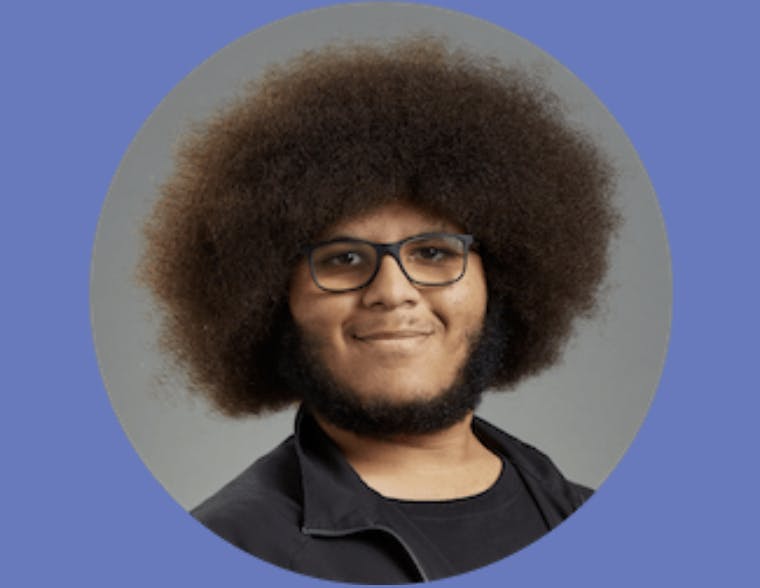
Bryan Harris ’26
JE: What is your Hometown?
Bryan Harris: My hometown is Los Angeles, California.
JE: What is your major and minor, if you have a minor?
BH: I am an International Politics and Economics major with a Philosophy minor.
JE: Can you give a brief description of your personal background and why you are running for senator?
BH: Being a first-generation Afro-Latino, running for SGA Senator to benefit my community is my goal. The Middlebury community has given me many perspectives, many insights and has made such an impact on me being a Middlebury college student. I want to use the analytical skills and wisdom that I have learned here at Middlebury along with the advocacy and responsibility that I have gained from my high school to help the community that has benefited me
JE: If elected, what qualities and policies would you uniquely bring to the table? What is your vision for Middlebury?
BH: I aim to bring experience in student activism and leadership to promote diversity, equity, and inclusion on campus. I plan to support initiatives that increase access to resources and opportunities for all students, promote mental and physical health support, empower marginalized communities and promote communication between students and administration. If elected, I will advocate for the needs of underrepresented students and create a welcoming and inclusive campus environment that celebrates diversity and promotes equity. I also plan to work towards addressing economic barriers faced by low-income students through initiatives such as healthcare services and opportunity grants. By promoting transparency and collaboration, I aim to ensure that student needs are met, and the SGA and administration work together to create a better campus experience for all.
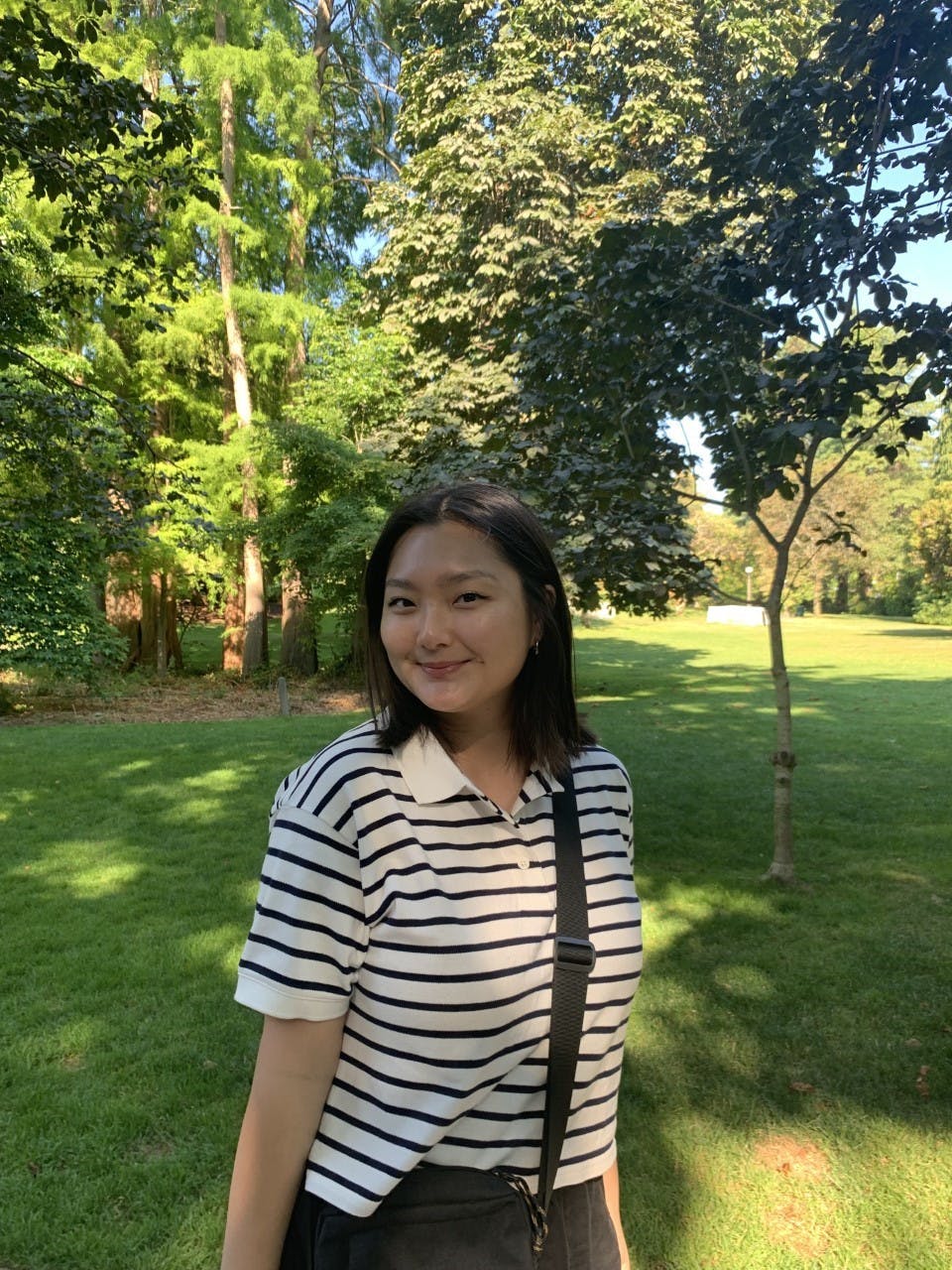
YiJun Kim ’26
JE: What is your hometown?
YiJun Kim: I’m from Las Vegas.
JE: What is your major and minor, if you have a minor?
YK: I am currently undeclared, but I’m thinking about majoring in political science and minoring in global health.
JE: Can you give a brief description of your personal background and why you are running for senator?
YK: Throughout high school, I’ve always had a passion and have taken an active role in student government, acting as a class and student body president, board member to the Nevada State Board of Student Councils and student representative to the school board. With these experiences, I will continue to advocate and share feedback from the student body to better support my peers, especially historically underrepresented groups. I have the desire to use my previous leadership qualities and experiences to help create a sense of community here at Midd, whether that’s through planning fun whole-grade outdoor activities such as square dancing, a day out at Lake Dunmore or writing/submitting bills on changes that the students want to see.
JE: If elected, what qualities and policies would you uniquely bring to the table? What is your vision for Middlebury?
YK: Because I don’t own a vehicle, I, along with many of my peers, struggle the most with figuring out transportation from and to the airport. I believe that the current SGA break bus system could be altered to better accommodate students who do not have reliable transportation. If elected, this issue would be my priority to tackle in figuring out a better way of accommodating students with transportation. Another goal of mine is to be more transparent with what the senators can do in terms of making institutional changes. It’s important to make sure the student body is aware that they can communicate with the senators to discuss any issues or changes they want to see. I also want to help the underclassmen build connections with the upperclassmen, specific to their respective degrees/departments. Although we have many clubs that are specific to interests and departments, being able to connect with upperclassmen at these clubs can be challenging and intimidating, as attending clubs is a time commitment and students must go out of their way to actively try to make connections. By establishing a system where students can easily chat with upperclassmen with the same degree(s), the underclassmen can get advice pertaining to career choices and courses to take/not take. My vision for Middlebury is ultimately to bridge the differences in our class as we come from different backgrounds and cultures, through open-minded discussions and fun community activities. My ultimate goal is to provide academic and social support to the student body. I’m currently campaigning with Josie Chun, whom I have been working closely with for the past few months in the SGA first-year committee. I’m confident in our abilities to work together to establish a sense of community for the sophomore class.
You can learn more about the presidential candidates and their platforms at the SGA Presidential Debate in Crossroads Cafe at 7 p.m. on April 23.
Correction 04/23/23: A previous version of this article misstated the class year for Aniketan Pelletier. Pelletier is a member of the class of 2025, not the class of 2024. This error has been corrected.

